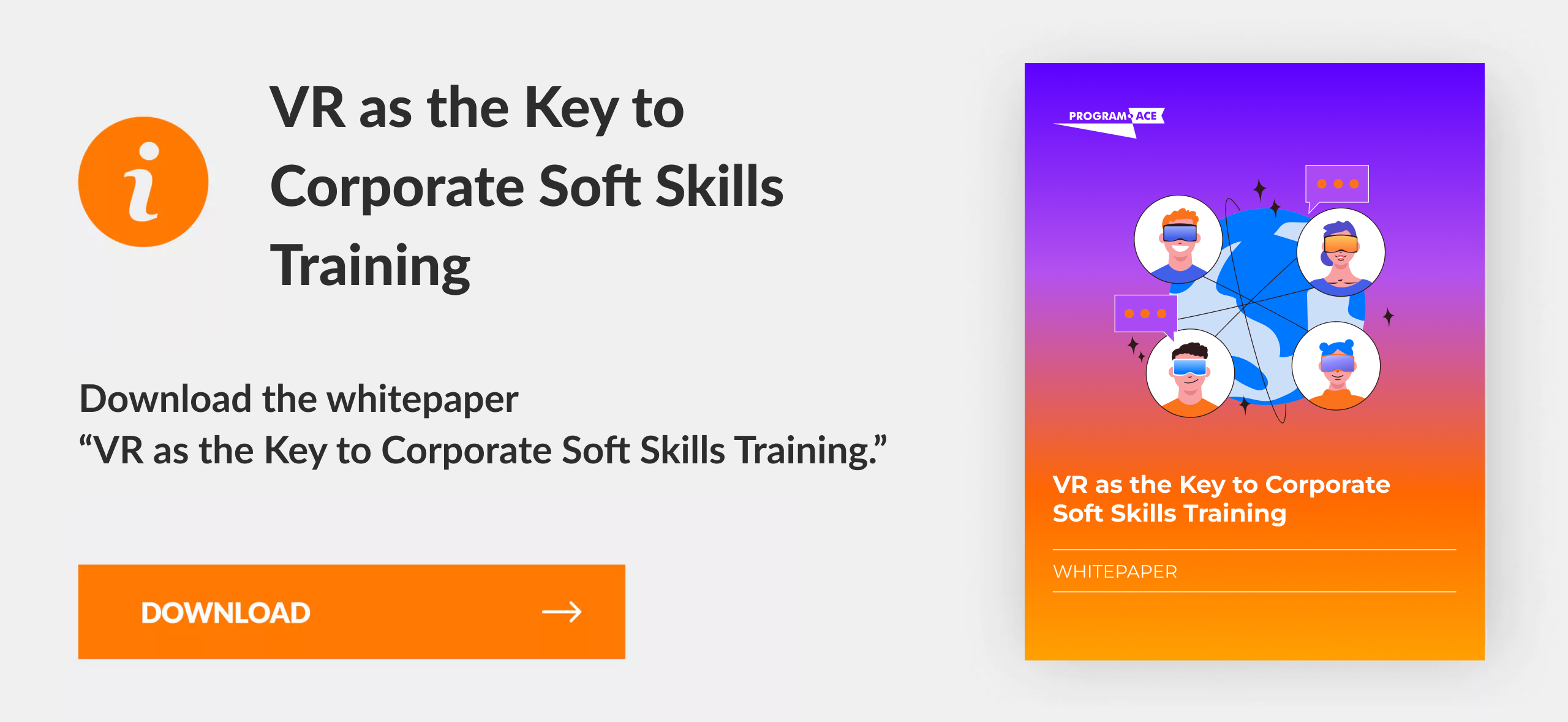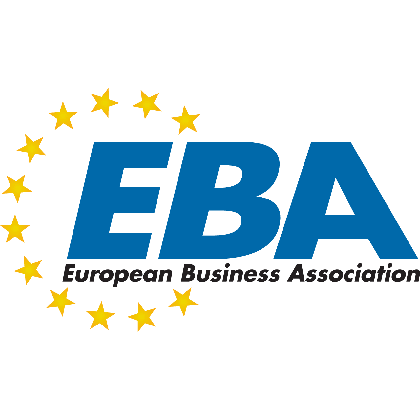Increasing operating efficiency is a top priority for most companies, and it applies to all business processes, including training. To reduce material and workforce needs while providing workers with a comprehensive learning experience, many companies have turned to digital training solutions, of which serious game development deserve plenty of attention.
In a recent study, serious games proved to have a profoundly positive effect on worker performance, and the game type is generating plenty of waves elsewhere. In this article, we will examine how serious games work and what it takes to integrate them into your business, possibly with the services of a virtual training company.
What are serious games? And what is their role in corporate training?
A serious game is a game whose main purpose is not to entertain, but to deliver knowledge, strengthen skills, or otherwise carry practical value for the one playing or the one providing the game. In other words, it can look like a regular game and carry traditional game mechanics, but players are actively learning, even if they are not aware of it.
It is worth mentioning that using serious games for business is different from gamification (a process of adding game elements to tasks and work). In gamification, people perform their daily duties with a few fun game mechanics thrown into the mix, but a serious game is a complete application that they sit down and play.
Serious game benefits
-
Better knowledge acquisition
It can be hard to make complex information clear to trainees with traditional learning methods like lectures and reading materials. However, serious games do not suffer from this issue, and present the information in a new way that is much easier to understand and remember.
-
Improves worker contentment
Learning through a game is a positive experience that workers will be sure to appreciate and enjoy. They will probably be pleasantly surprised that you chose this stress-free, dynamic, and exciting way for them to learn (and probably one they never tried before).
-
Cultivating problem-solving skills
Games are a great tool for cultivating creative thinking and problem-solving. For example, you can set an objective for the player in the game without clear instructions on how they can proceed. The player then has several avenues through which they can achieve success, and they have to rely on their own wit.
-
Easy data collection
Games make it easy to track progress and user behavior, which can certainly not be said about standardized tests and in-person assessments. Because a game provides a pressure-free environment, users will be much more honest in their decisions.
-
Facilitates self-esteem
Any business stands to benefit from an increase in workers’ self-esteem and confidence, because their specialists are more decisive, focused on success, and generally have good performance indicators. Games provide a nurturing environment where success is celebrated and confidence can grow.
Corporate training game examples
Let’s examine some prominent examples of businesses using serious games:
1. Pulse!
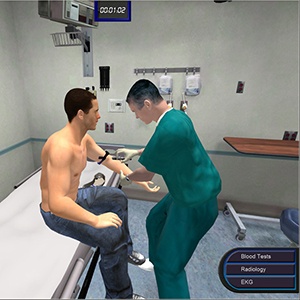
This game was built for a medical institution and puts players in the shoes of a physician or nurse building their career and caring for patients. Players go through multiple scenarios that force them to respond to various work-related situations.
2. Pacific
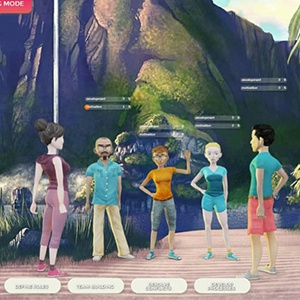
Pacific is a Spanish-language game for managers and employees that aspire to become managers. It features the vibrant game world of a deserted island and helps cultivate leadership and other soft skills by asking the player to survive, create a makeshift settlement, and take charge of the situation.
3. Merchants
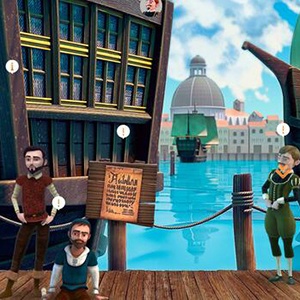
“Merchants” is a game for, you guessed it, merchants and anyone working in the world of trade. It is based in a unique historical setting and teaches players various negotiation techniques, trade practices, and ways to be better in their business dealings.
How to use serious games in your business
As you weigh whether it’s worth creating a serious game for your workers, you can look at some of the most popular use cases of this solution applied by other businesses:
-
Soft skill training
You can do a lot more with serious games than present new information. Corporate soft skills training through games and activities often includes various scenarios that help employees develop leadership, clear communication, effective collaboration, and initiative.
-
Equipment training
A game is a safe space with no risk to health, making it the perfect ground to learn how equipment works. Even if you do not fully simulate the experience of handling equipment (that is possible through VR safety training), you can convey how it works and how to use it safely.
-
Troubleshooting
A good game never becomes repetitive, and you can keep the experience fresh by implementing various work-related scenarios that will make players think outside the box and troubleshoot situations they have never encountered before.
-
Aptitude test
Some people tend to freak out when they know they are about to be tested, but a game is a much more relaxing setting. Players become immersed in the game world and often even forget that their performance will be monitored, so you can get a more accurate gauge of their level.
-
Compliance training
Knowledge of company policies is extremely important, but nobody likes reading and memorizing rules. Fortunately, a game provides a new medium to visually present rules and make them much more accessible to the people working at your company.
Create your own training/simulation
with a development partner
What to know before you build a serious game
Building a game is not as easy as some people think. You should have solid knowledge of software development (or game designers available for the task), proper development tools, a comprehensive plan with materials and references, and plenty of months to bring the project to completion.
For many companies, Unity and Unreal Engine are the go-to choices for development. Both of these game engines support over a dozen platforms and have broad functionality for implementing 2D and 3D features, art, etc. Unity is especially popular for making mobile games and immersive experiences (VR/AR/MR), while Unreal is often chosen for games with high performance and graphics requirements.
You should also put some thought into how you want to deliver information. Let’s take a closer look.
Popular Serious Game Mechanics
Plot branching
Many companies need their workers to be prepared for different situations, so they create unique scenarios based on individual user choices. This way, a player can always go back, make a different choice and get a different experience.
Hints and explainers
Sometimes, new information in a serious game is delivered in voiceover, and sometimes, it is displayed prominently on the screen. However, even when a user is expected to know something, adding contextual hints and text can be beneficial.
Leaderboards
Playing serious games doesn’t have to be a solitary exercise. In fact, employees tend to perform better when game leaderboards are available. Leaderboards allow them to see their colleagues’ progress and create an air of competitiveness.
Pop quiz
Some games have a “review” phase after a level or checkpoint is completed. At this point, the player has been exposed to new information or practiced something and this newfound knowledge should be cemented. Some companies do it through a brief quiz between levels.
Timers and lives
Though some games have a leisurely pace and let users learn slowly, others put pressure on them to facilitate decision-making and increase the stakes. One popular way to do this is through a failure timer, and another is with lives (players can make a limited number of errors).
Multiplayer
You can implement collaborative elements or full multiplayer in your game if you need workers to practice working in a team and responding to the needs of others. Usually, these 2+ people will need to be playing simultaneously and communicating through chat.
Development services from a serious games company
It can be much easier to put the development of your game in the hands of a reliable company than it is to complete the project yourself. Ideally, your provider will have a substantial software development portfolio with relevant projects in gamification and serious games.
Program-Ace is a software development outsourcing company with decades of experience in creating serious games solutions for businesses. It would be our pleasure to help you with your project and get it done with the high level of quality and fast turnaround you expect.
To begin discussing cooperation and how it could work, just send us a message.
